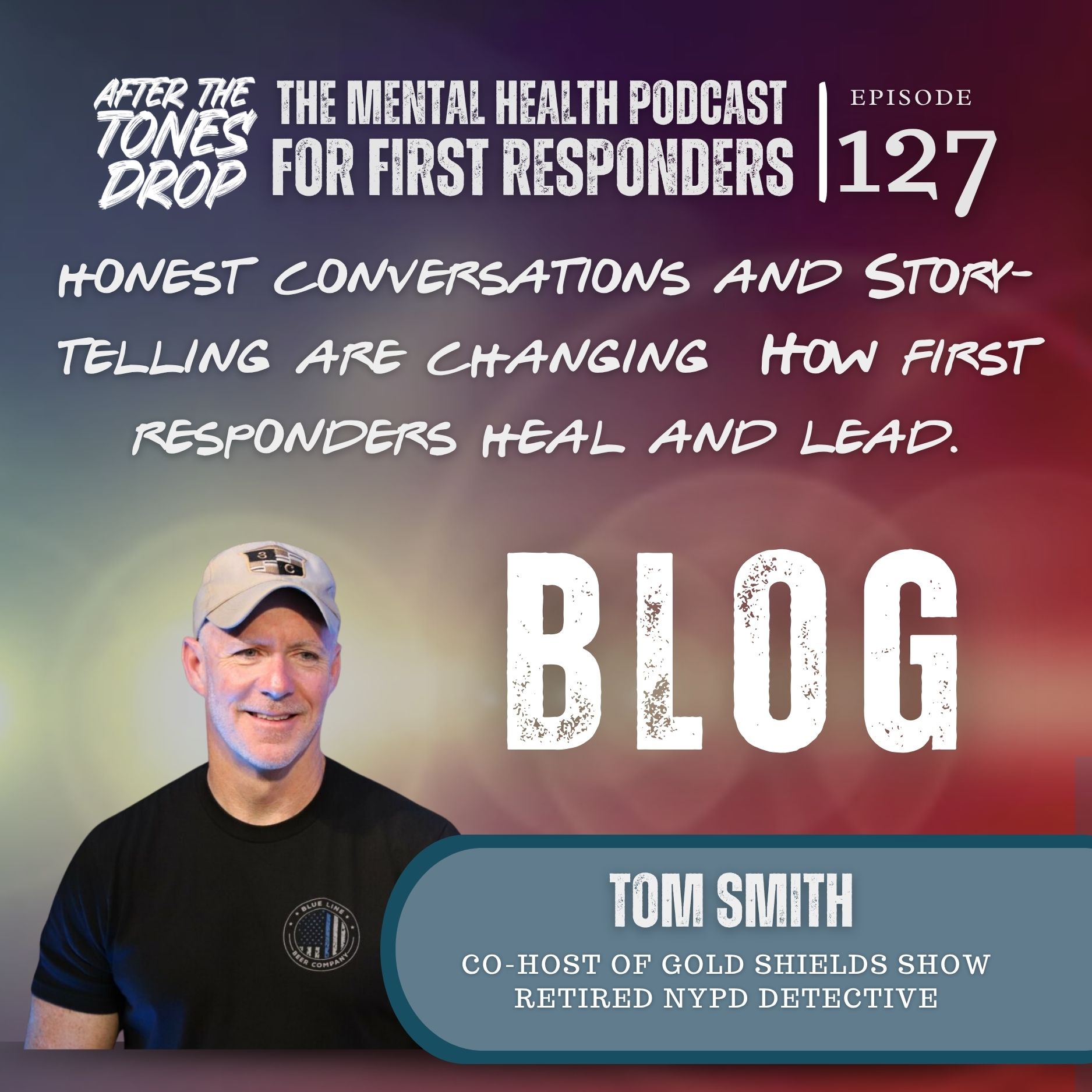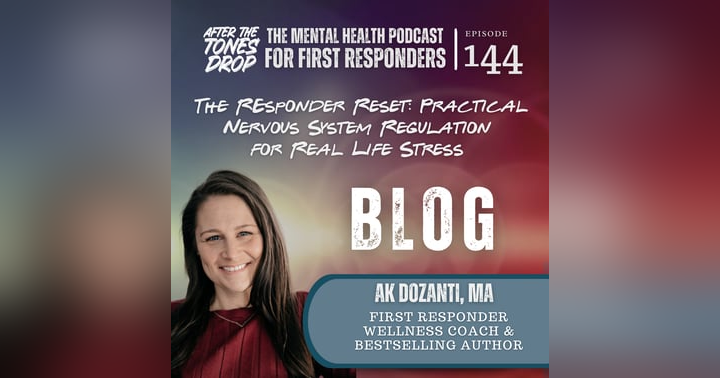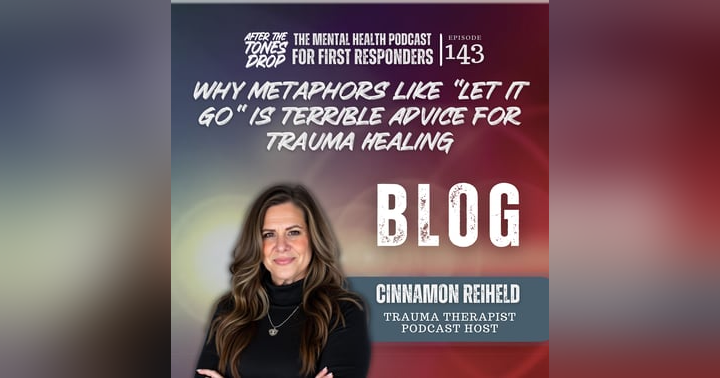Tom Smith Retired NYPD Detective on Breaking the Stigma, Healing Out Loud, and The Power Of Story-Telling

When you’ve spent decades on the job (seeing what most people can’t unsee) it’s easy to believe silence is strength. But what if talking about it is what saves you?
In Episode 127 of After the Tones Drop, I sat down with retired NYPD Detective Tom Smith, co-host of the Gold Shields podcast, to talk about the side of law enforcement that doesn’t make the headlines: the toll, the recovery, and the power of speaking your truth out loud.
A Legacy of Service and the Cost of Silence
Tom’s story starts long before he ever wore a badge. His father was an NYPD detective, and the precinct was practically his childhood playground. “Before Yankee games, we’d stop by the squad rooms and meet his partners,” he said. “They were part of our family.”
That legacy of service shaped Tom’s 30-year career, including 17 years on the FBI Joint Terrorism Task Force. But the same brotherhood that made the job meaningful also made it hard to admit when things weren’t okay.
“In a lifetime, the average person might have two or three traumatic events,” Tom said. “I can have two or three in a half hour at work.”
For decades, the unspoken rule in law enforcement was simple: Don’t talk about it. Just deal with it. But Tom learned that silence doesn’t protect you, and it can never help you heal the trauma you are exposed to.
“No one’s alone. There’s someone right next to you dealing with the same thing. It’s okay not to be okay.”
Talking It Out: How Connection Saves Lives
One of the most powerful parts of our conversation was when Tom shared how his wife became part of his healing process.
“She always made me talk about what happened at work. Whether it was five minutes or an hour, it helped me sleep. It got it out of my head.”
That simple habit of talking was his secret weapon for being ok, it wasn’t therapy, but it was therapeutic.
And that’s Tom’s message to every officer and first responder: if you don’t have someone at home to talk to, there are hotlines, peer groups, and clinicians who get it. You don’t have to go quiet. You just have to go somewhere you can share your stories.
“If you have the skillset and the experience of what you’ve been through and you don’t share that, why are you doing anything?”
Storytelling as Healing and Legacy
After retirement, Tom and his longtime partner Dan Murphy launched the Gold Shields podcast, a platform for detectives, veterans, and first responders to share their own stories.
Tom calls it part healing, part legacy. “We’re so guest-centric because we want people to tell their stories. They lived it. They earned it.”
That storytelling mission isn’t just about preserving history, it’s about connection, empathy, and proof that no one is as alone as they feel.
As we talked, I couldn’t help but think: this is what breaking stigma looks like in real time. One conversation at a time.
Leadership, Change, and Trust
Tom’s approach to leadership is rooted in authenticity and empathy. “Leadership’s a skill,” he said. “Whether you have two years on or ten, if you’re a leader, then be a leader.” Your experience should be shared.
That means leading with honesty, breaking old patterns, and building trust between clinicians and first responders.
“Cops think clinicians are out to get them. Clinicians think all cops are damaged. Neither is true. We just need to start talking (and listening).”
Tom Smith’s story is what happens when courage takes a new shape. When toughness looks like talking about it, and strength looks like saying, “Me too.”
If you’re in law enforcement, married to someone who is, or just care about the people behind the badge, this conversation is worth your time.
🎧 Listen to the full episode: afterthetonesdrop.co/tom-smith
If you are ready to start your own conversation, visit thegoldsheildshow.com to connect with Tom and his team. Because healing doesn’t happen in silence. It happens when we tell the truth—together.




